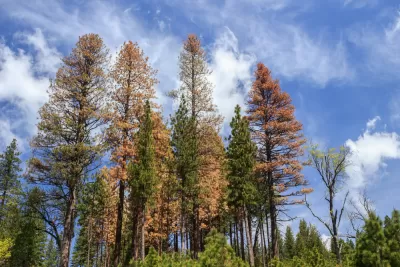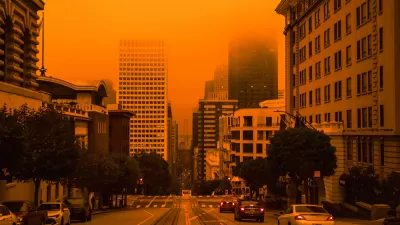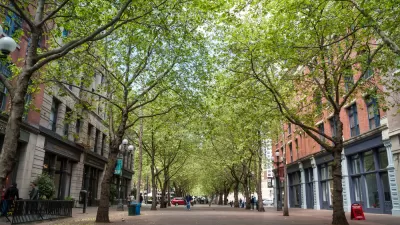Until the late 1990s, the amount of vegetation worldwide was increasing. But then it stopped, and a new study links this troubling trend to climate change.

"The world is gradually becoming less green, scientists have found. Plant growth is declining all over the planet, and new research links the phenomenon to decreasing moisture in the air—a consequence of climate change," writes Chelsea Harvey.
A recent article in the journal Science Advance says that vegetation levels started decreasing over the last 20 years. "Since then, more than half of the world’s vegetated landscapes have been experiencing a 'browning' trend, or decrease in plant growth, according to the authors," notes Harvey.
The cause is a decrease in air moisture, which climate models show will continue as global warming continues, says Harvey. "Many researchers have suggested that climate change, on the whole, is likely to be a net negative for much of the world’s vegetation, including agricultural crops. The new study would seem to suggest that those consequences are already in motion."
FULL STORY: Earth Stopped Getting Greener 20 Years Ago

Maui's Vacation Rental Debate Turns Ugly
Verbal attacks, misinformation campaigns and fistfights plague a high-stakes debate to convert thousands of vacation rentals into long-term housing.

Planetizen Federal Action Tracker
A weekly monitor of how Trump’s orders and actions are impacting planners and planning in America.

In Urban Planning, AI Prompting Could be the New Design Thinking
Creativity has long been key to great urban design. What if we see AI as our new creative partner?

How Trump's HUD Budget Proposal Would Harm Homelessness Response
Experts say the change to the HUD budget would make it more difficult to identify people who are homeless and connect them with services, and to prevent homelessness.

The Vast Potential of the Right-of-Way
One writer argues that the space between two building faces is the most important element of the built environment.

Florida Seniors Face Rising Homelessness Risk
High housing costs are pushing more seniors, many of them on a fixed income, into homelessness.
Urban Design for Planners 1: Software Tools
This six-course series explores essential urban design concepts using open source software and equips planners with the tools they need to participate fully in the urban design process.
Planning for Universal Design
Learn the tools for implementing Universal Design in planning regulations.
Gallatin County Department of Planning & Community Development
Heyer Gruel & Associates PA
JM Goldson LLC
City of Camden Redevelopment Agency
City of Astoria
Transportation Research & Education Center (TREC) at Portland State University
Jefferson Parish Government
Camden Redevelopment Agency
City of Claremont





























